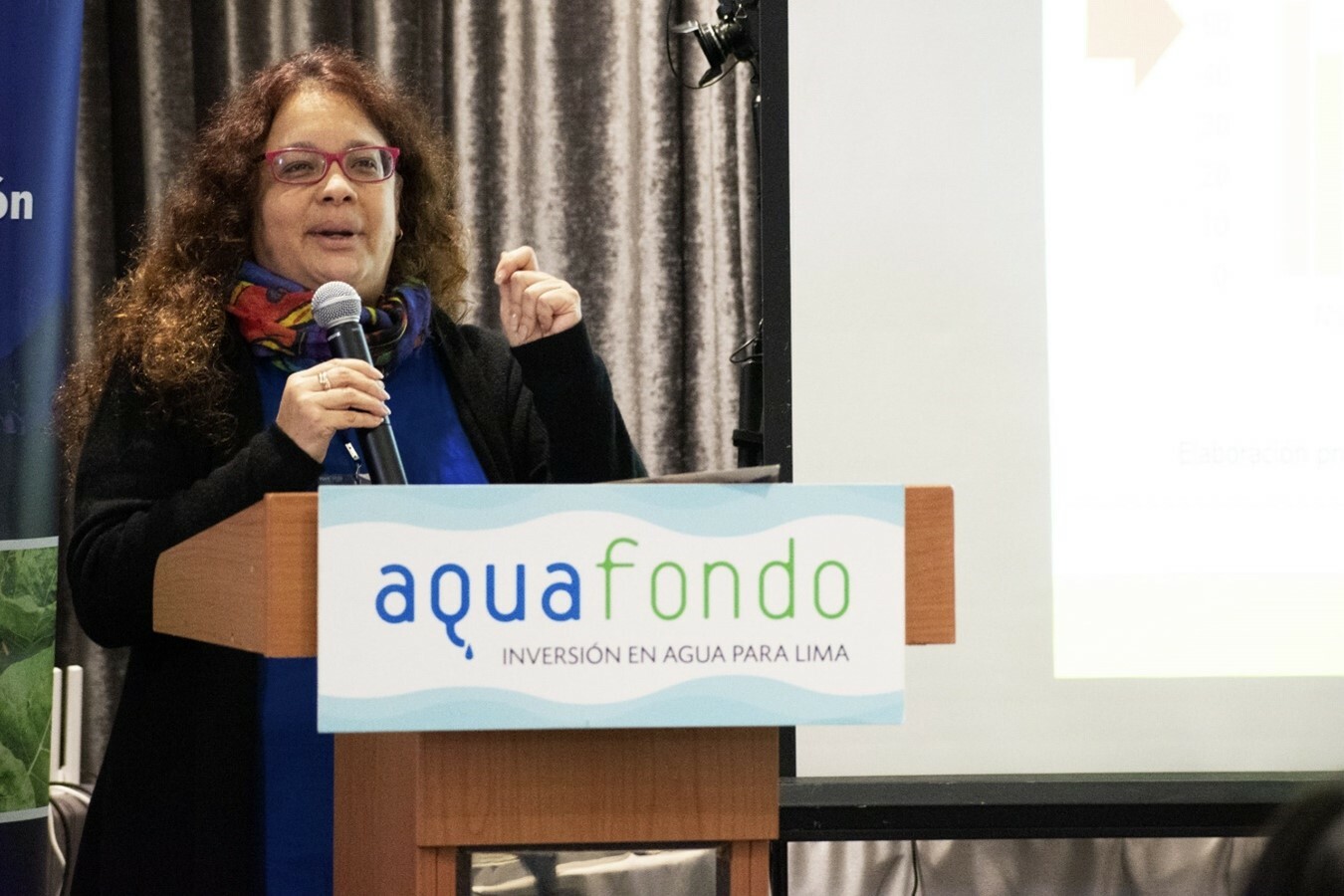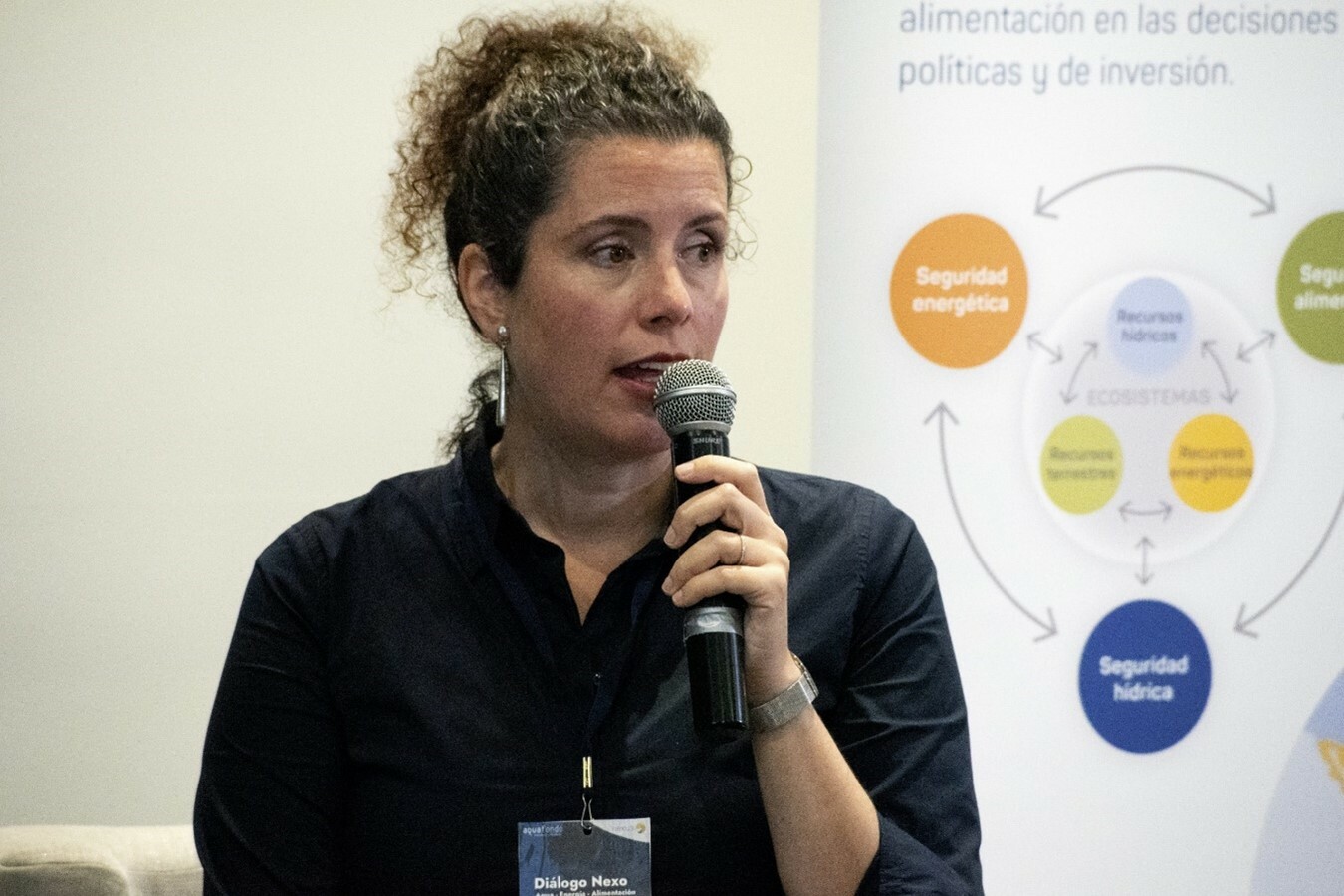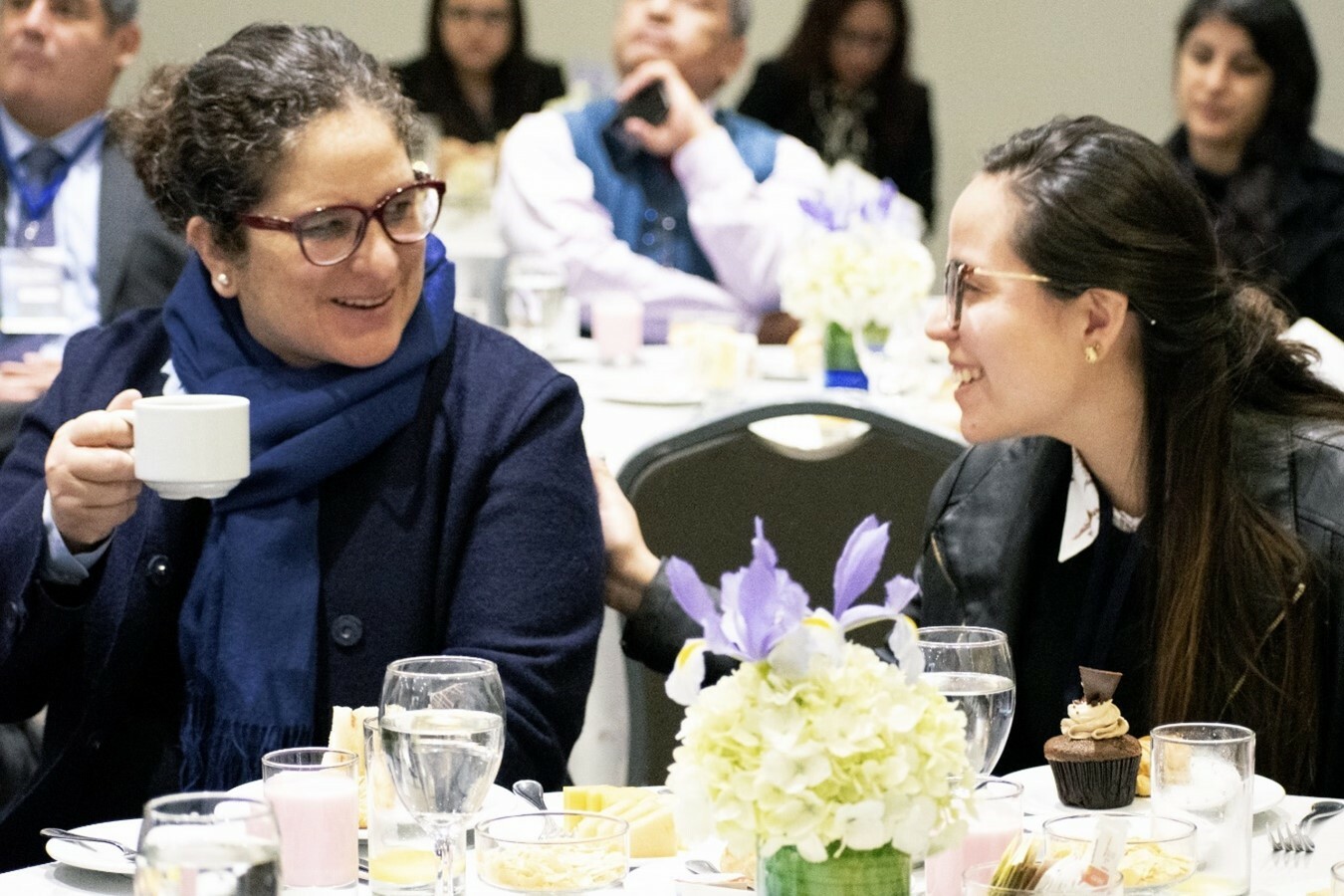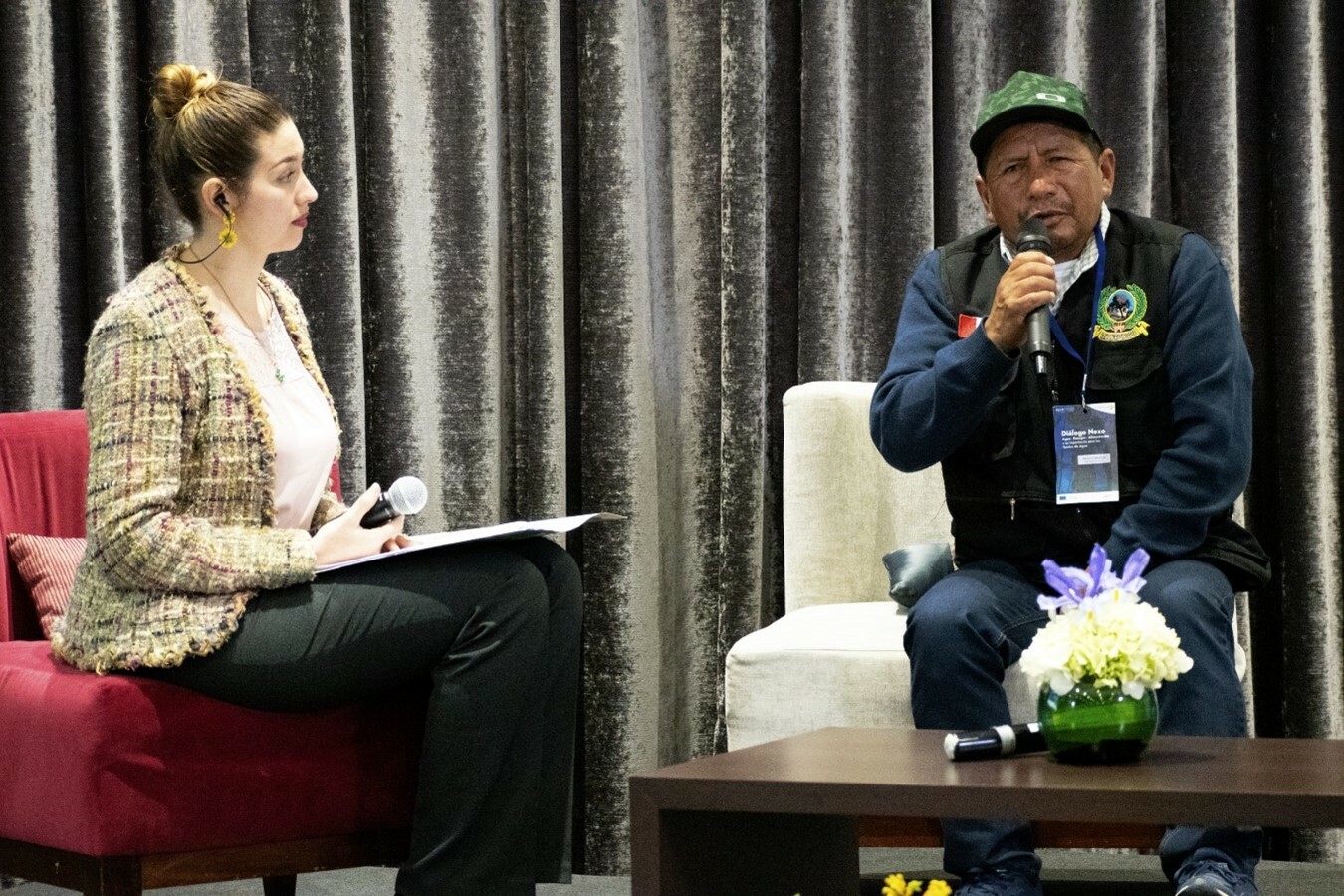By loading the video, data will be sent to YouTube. More information can be found in our data protection policy.
Nexus Regional Dialogues Programme LAC // Nexus Dialogue: United to face water, energy and food crises.
On Tuesday, August 23, the main actors of the water sector in Peru met at the Nexus Dialogue event "Water-Energy-Food", organized by AQUAFONDO, in alliance with the Nexus program of GIZ. This meeting aimed to discuss and analyze the importance of the link between water, energy and food security in order to face the country's environmental crises.

©Aquafondo
The event was closed by the former Minister of MINAM and member of the Board of Directors of Sunass, Lucía Ruíz, and was attended by representatives of National Water Authority of Peru (ANA), Sedapal, Minam and the water funds of Peru, among other relevant actors in the water sector.
Peru is in a scenario of a possible water crisis, due to changes in natural resources such as glaciers, wetlands, grasslands and mangroves, climate change, and constant human activity in nature, in addition to population growth and high demand for drinking water. This may lead to food shortages in the medium term, due to lower agricultural production and more frequent floods and droughts, as well as an energy crisis since the water flow for hydroelectric power plants may eventually be insufficient for electricity generation.
Given this local scenario, water funds, state institutions and international cooperation entities came together to share their experiences in the "Water-Energy-Food" Nexus Dialogue, to reflect on how including the Nexus approach can enhance water regulation and supply projects.
Speakers included the Head of the Nexus Regional Dialogues Global Program, María Ana Rodríguez Gómez-Cornejo; the Coordinator for Latin America and the Caribbean of the Nexus Regional Dialogues Global Program, Antonio Levy Berstein; the former Minister of Development and Social Inclusion and Researcher at the Catholic University of Peru, Silvana Vargas Winstanley; and Mariella Sánchez Guerra, Executive Director of AQUAFONDO.

At the event, a dialogue was held in which representatives of the participating organizations exchanged experiences and points of view. These entities included: the Ministry of the Environment, the National Water Authority (ANA), the Water Regulator of Peru (Sunass), the Water Sanitation Authority of Lima (Sedapal), the Chillón-Rímac-Lurín Interregional Water Resources Council (CRHCI CHIRILU), The Nature Conservancy, Nestlé, Pepsico, cbc, GRUPO GEA, Nubes, the Embassy of the Netherlands, Red Design Lab, Rotoplas Peru, the Quiroz – Chira Water Fund, FORASAN Piura and ResponsAbility Investments AG.
The Cajamarca Green Basin Water Fund of Bolivia, the Santiago-Maipo Water Fund and Water Scenarios 2030 of Chile, and Agua Capital of Mexico were also present in virtual format.

The meeting ended with a plenary of results, where the conclusions on the relationship between water regulation and supply projects and rural development, local production and the improvement of the quality of life were synthesized. The relevance of incorporating the Nexus approach into these initiatives was also emphasized.
The former minister of the Ministry of the Environment and member of the Board of Directors of Sunass, Lucía Ruíz, closed the event, highlighting the benefits of water resources to achieve development and social inclusion in rural areas.
"We need spaces where we complement visions, and that is what we have done today, learning from each other to enrich ourselves. Thanks to these projects, local development is being generated, a development that will make it more affordable and interesting to stay in the communities, and offer goods and services for the development of all community members. This experience needs to be systematized, replicated, and scaled," said the former Minister.

Nexus systemic approach
The Nexus systemic approach contributes to fulfilling the SDGs related to the 2030 Agenda. Through project implementation, efforts are not only directed to combine water, energy, and food security, but also to promote benefits from economic, social, environmental, and geopolitical aspects, as well as from developing regional relationships.
In 2021, the Water Fund for Lima and Callao – AQUAFONDO, identified a potential Nexus Project in the peasant community of San Pedro de Casta in Huarochirí, in collaboration with the GIZ Nexus Program.

Thanks to this alliance, training workshops on healthy nutrition and business plans were carried out. The implementation of a bio-orchard supplied with technified irrigation systems, a guinea pig breeding center (with solar panels as an energy source), a composting center, and the rehabilitation of the Qocha Marcahuasi (an ancestral lagoon) with storage capacity for 40,000 m3 of water was also implemented. These activities have ensured sustainable benefits for more than 70 rural families in the peasant community.
Currently, seven communities in the Santa Eulalia sub-basin have been identified with the potential to replicate the comprehensive approach of the water, energy, and food nexus. If these projects are consolidated, 800 rural families would benefit from additional 10 million m3 of water storage.
This article was first published in Spanish on the AQUAFONDO website on August 29, 2022.
Recording of the Event
(available in Spanish)

